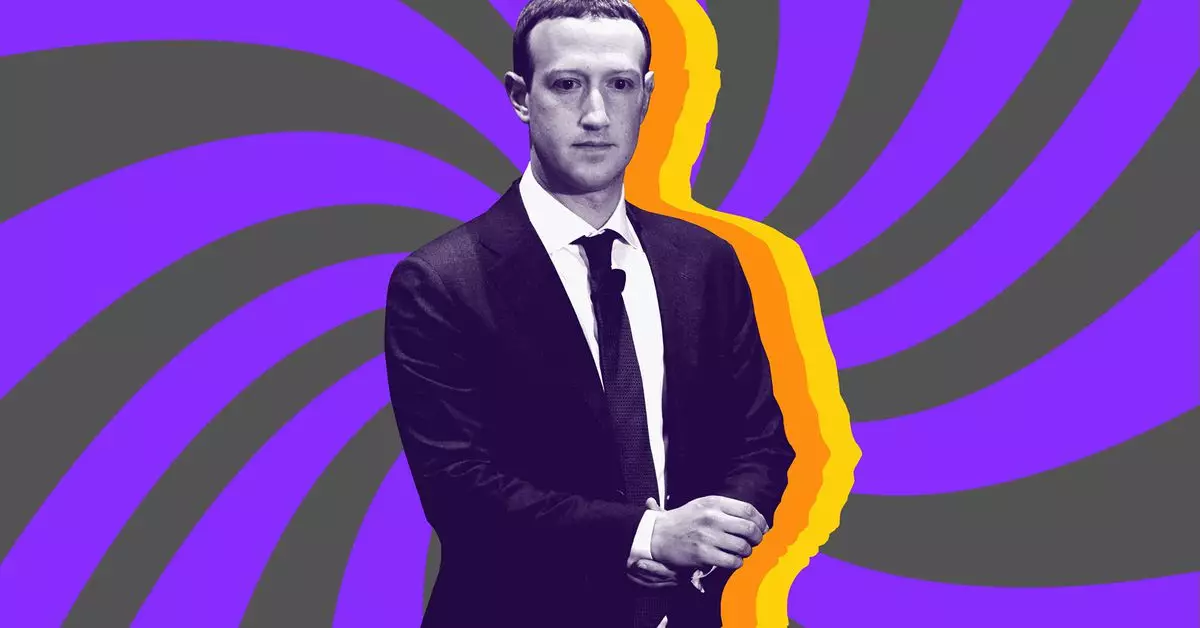In recent discussions, Meta’s CEO Mark Zuckerberg has openly criticized Apple, claiming the tech giant is resting on its laurels rather than innovating. During a lengthy podcast with Joe Rogan, Zuckerberg expressed his frustration regarding Apple’s approach to technology—a sentiment that resonates with many industry insiders. Some argue that in an era defined by rapid advancements, companies must continually evolve to remain relevant, and Zuckerberg’s comments highlight a significant ongoing rivalry between two of the biggest players in tech.
Zuckerberg argued that Apple, under the stewardship of its late founder Steve Jobs, made revolutionary strides, particularly with the introduction of the iPhone. However, in his view, innovation at Apple has stagnated in the last two decades. By referring to Apple’s current approach as “coasting,” Zuckerberg suggests that the company has not released many ground-breaking products recently. In a sector that thrives on cutting-edge advancements and transformative ideas, this perceived complacency raises questions about Apple’s future trajectory.
A significant element of the ongoing critique is Apple’s App Store policies. Rogan’s discourse about switching from Apple to Android platforms stems partly from dissatisfaction with App Store regulations, particularly the 30% commission Apple levies on apps. This commission structure has fostered discontent among developers and companies alike, including Meta. Zuckerberg argued that these fees have led to disproportionate financial strain on businesses seeking to thrive within Apple’s ecosystem.
Zuckerberg’s assessment further extends to the numerous barriers Apple imposes on interoperability. He articulated a vision where the company’s restrictive practices inhibit competition, particularly in hardware integration. The connection limitations compounded by unjustified rules, according to his viewpoint, severely affect companies like Meta trying to provide alternatives or innovate new products. By preventing third-party devices from leveraging Apple’s protocols, Zuckerberg believes the potential for competition—which could ultimately benefit consumers—is compromised.
The conversation highlights a backdrop of regulatory scrutiny surrounding Apple. With increasing pressure from the European Union and lawsuits from the U.S. Department of Justice targeting monopoly practices, change may be on the horizon for Apple. Historically, Apple has resisted these pressures, maintaining its tightly-controlled ecosystem. However, as regulatory environments evolve, the company faces mounting pressure to adapt its policies. Zuckerberg’s perspective hints at a potential reckoning for the tech giant, which may have to reconsider its approach to competition in the face of external scrutiny.
Zuckerberg posits a worrying outlook for Apple should it continue down its current path. In a rapidly shifting tech landscape, the inability to innovate can lead to obsolescence, making it ripe for disruption from emerging competitors. He warns that if Apple continues to prioritize its products over fostering an ecosystem conducive to third-party innovation, it risks losing its competitive edge. With agile startups and technology firms poised to leapfrog established giants, the stakes for Apple—and indeed for the entire industry—are significant.
Aside from his critiques of Apple, Zuckerberg touched upon broader technological themes, particularly the evolution of human-computer interaction. Emphasizing developments in neural interfaces and augmented reality, he envisions a future in which digital interactions become indistinguishable from physical experiences. The merging of virtual and real-world environments presents both opportunities and challenges, and Zuckerberg depicted an ambitious future where human cognition interfaces seamlessly with technology.
This vision raises poignant questions: What will the world look like when augmented and virtual realities become commonplace? Zuckerberg foresees individuals utilizing wearable technology—like wrist-based neural devices—in interacting with their digital environment and communicating more intuitively. As he discussed advancements such as smart glasses or even contact lenses, the prospect of an extensively interconnected world looms on the horizon.
However, with such advancements come ethical considerations regarding privacy, data security, and the impact on human interaction. The need for responsible innovation becomes paramount in ensuring that technology enhances rather than diminishes the quality of human experiences.
The clash between Zuckerberg and Apple underscores a crucial moment in the tech industry. As companies navigate their paths amid rapid technological evolution, the balance between innovation, competition, and regulatory compliance remains delicate. This dialogue invites both stakeholders and consumers to ponder what lies ahead as they navigate an increasingly interconnected, technology-driven world—and how they can shape it for the better. It is a reminder of the volatile but exciting nature of the tech landscape, where the only constant is change.


Leave a Reply